Showing 71-80 of 102 results
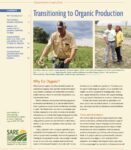
New SARE Bulletin: Transitioning to Organic Production
Since the 1990 Organic Foods Production Act passed, the market for organic products has steadily risen. In 2020, organic sales skyrocketed to an all-time high, motivating many farmers to consider transitioning their farms to organic production. While organic production can help farmers gain access to new markets, improve soil and increase profits, the transition process […]
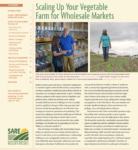
Scaling Up Your Vegetable Farm for Wholesale Markets
SARE’s newest bulletin, Scaling Up Your Vegetable Farm for Wholesale Markets, provides a variety of strategies and tools to help owners of small- to mid-scale operations branch out into wholesale markets.

The Value of Farming with Community
Shakera and Juan Raygoza talk about why their bonds with local consumers, families, schools, agricultural educators and other farmers are beneficial for both them and for the community where they live and farm. They operate Terra Preta Farm on 15 acres in Edinburg, Texas, where they grow organic radishes for wholesale markets and run a […]

SARE Fellows Examine Sustainable Range Management
After a two-year hiatus due to the COVID-19 pandemic, SARE Fellows recently reconvened to examine sustainable practices used in five crop and livestock production systems in Wyoming’s Bighorn Mountains.
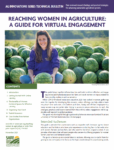
Reaching Women in Agriculture: A Guide to Virtual Engagement
"Reaching Women in Agriculture: A Guide to Virtual Engagement" outlines a range of strategies and tools to help educators who have prior experience conducting in-person educational activities adapt their programming for online and hybrid spaces.
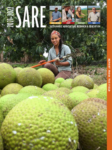
Farmer-Focused Innovations Funded by SARE
“Institutionalized food is the forgotten part of the food revolution,” says Ann Swanson, talking about the lack of fresh produce available from local institutions in her community of Champaign–Urbana, IL. Inspired, Swanson used a SARE Farmer/Rancher grant to create new opportunities for local farmers, launch a series of educational classes and expand institutional capacity to […]
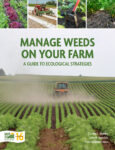
Manage Weeds on Your Farm: An Ecological Approach
SARE’s newest book, "Manage Weeds on Your Farm: A Guide to Ecological Strategies," examines the biology and behavior of common weeds and provides an integrated set of non-chemical control strategies that exploits their weaknesses.

SARE Welcomes New Associate Director Dr. Kristy Borrelli
The Sustainable Agriculture Research and Education Program (SARE) is pleased to announce that Dr. Kristy Borrelli has been hired to serve as its new associate director.
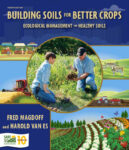
Updated Building Soils for Better Crops Focuses on Soil Health Fundamentals
SARE’s newest book, the fourth edition of Building Soils for Better Crops, provides rich detail on ecologically sound practices for developing and maintaining healthy soils. It is a must-read for farmers, educators and students alike.
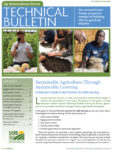
New SARE Bulletin Highlights Best Practices for Adult Learning
Studies show that farmers learn best through in-person, face-to-face educational programs. But learning opportunities often miss the mark due to content choice, disorganization or lack of understanding of participants' learning styles. Educators that use best adult learning practices have a greater effect on participants’ learning and retention, and empower farmers to make sustainable changes to […]